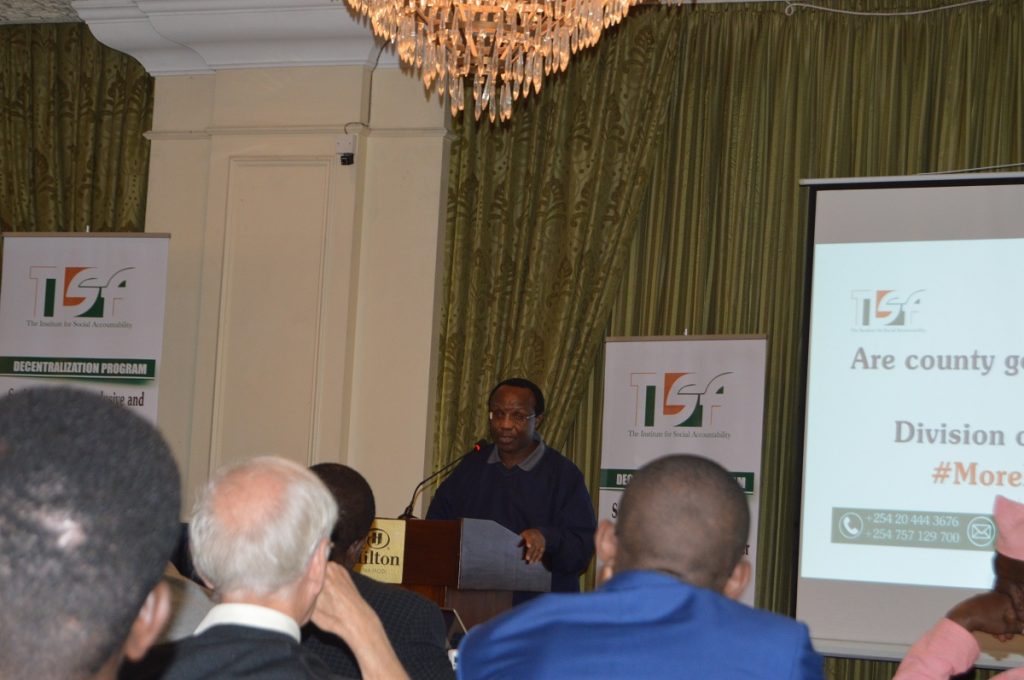“Government pursues self interest, if they do anything good it is an unintended outcome,” said Economist David Ndii.

Many people in Africa have a benevolent view of government. Think of African kings, no one expected them to provide development projects because they had title. Later Africans changed and started electing technocrats who had no titles and hence they had to provide development as a bribe to be allowed to stay in power.
The professionals are the gate keepers in our society. They want to be the point of contact when one wants to talk to the villagers. However, this changed with devolution because some “villagers” (read MCAs) got more power than expected.
Also Read: What do economists do?
Economist David Ndii explains Claw-backs on Devolution
There are a lot of efforts to draw back on devolution by the national elites who feel that they know a lot about development than the rest of the county.
Economist David Ndii narrates a story of a day he visited a friend who is a scientist at Vetlabs in Nairobi and asked what has changed since devolution started.
The scientist was very candid since he had seen a big difference stating that under the centralized government their parking lot used to be full with tinted Sports Utility Vehicles (SUVs). After devolution, the parking is largely empty.
Resources were centralized to all counties and the tender-preneurs were forced to chase the tenders by criss-crossing the country.
This because expensive and time consuming hence small and medium sized suppliers started getting tenders compared to the past when only large suppliers dominated the business.
The second form of Craw-backs on devolution was done in the form of mega projects which were doomed to fail. For example Galana-Kulalu irrigation project which strides between Kilifi and Tana River Counties. David Ndii notes that the project was destined to fail. When working towards food security, you do not start a mega irrigation project in one end of the county, instead you go to the farmers and support them to increase their agricultural productivity.
The second claw back point is mega dams. After building mega dams, the reticulations costs are prohibitive. This was another bad idea. Instead of building a large dams, the state should have involved the people. They are the ones who have solutions on how to get water. They have been accessing water, the problem was the distance covered to get to the source of water. By imposing mega dams on the people, it’s a claw-back on devolution.
The architects of Kenya Constitution 2010, knew that devolution would be killed just like majimbo. That is why they set a minimum of 15% of the previous year’s revenues to be allocated to the counties.
Also Read: Government suspends Kenyan passports for 15 opposition leaders
Majimbo was weakened by being denied resources. This can’t happen under devolution because of the strong laws which have been put in place.
David Ndii says that “no County Assembly, no devolution.” Instead of the national government pointing an accusing finger at the counties as being responsible for making devolution expensive, they should do away with the entire provincial administration systems which has between 10,000 – 60,000 redundant employees.
Citizens must be more proactive on the national budget
The national government retains lots of resources for which they are not being held into account as much as possible. For instance, in FY 2018/2019 National Government spending agencies had a budget of Ksh. 2 trillion compared to Ksh. 314 billion allocated to the all 47 counties.
A walk around the counties you can be able to see county development project. We should see more approximately eight times than number being implemented by the national government. This is not happening. Where is the money going? A look at the audit reports, you find out that the money in billions is not being accounted for by the Ministries, departments and Agencies at the national level.
Ndungu Wainana calls for fast-tracking of the process of unbundling and costing of functions. This has never happened.


